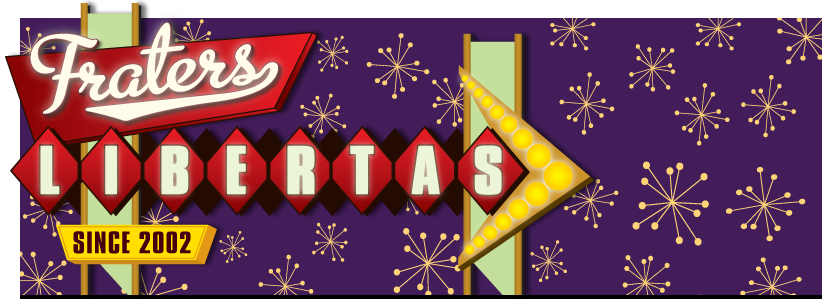Back in the day, I was a regular viewer of "South Park." The show was funny and often quite topical. Although it did mock some of the same individuals, groups, and institutions that our mainstream pop culture has decided are deserving of ridicule, it also went after others who typically have been given a pass from withering satire. "South Park" also evidenced a feisty streak of supporting independence, freedom, and personal responsibility. While some have viewed this as conservative (as I did early in the show's run), it's really more of a neo-libertarian attitude that isn't commonly found in the entertainment world.
Over the years, I've fallen away from the show. Cynical mockery done right can be very humorous, but it only takes you so far. There's only so many subjects that you can skewer, so many storylines you can create, and so much depth to your characters that you can develop before it all begins to wear a bit thin and seem repetitive. And once you have children, the idea of watching an animated show with the adult language often featured on "South Park" loses much of its appeal.
It's not that I've repudiated the show entirely. On those rare occasions when I do catch an episode these days I usually find myself moved to laughter frequently, far more frequently than any current network sitcom I can think of. But it's no longer part of my regular television viewing in the way that say "SpongeBob Squarepants" is.
While "South Park" may not hold as much appeal for me today as it used it, the show's cultural relevance shows no signs of abating. The latest evidence is today's WSJ column by Bret Stephens called Obama and the South Park Gnomes
Consider the 1998 "Gnomes" episode -- possibly surpassing Milton Friedman's "Free to Choose" as the classic defense of capitalism -- in which the children of South Park, Colo., get a lesson in how not to run an enterprise from mysterious little men who go about stealing undergarments from the unsuspecting and collecting them in a huge underground storehouse.
What's the big idea? The gnomes explain:
"Phase One: Collect underpants.
"Phase Two: ?
"Phase Three: Profit."
Lest you think there's a step missing here, that's the whole point. ("What about Phase Two?" asks one of the kids. "Well," answers a gnome, "Phase Three is profits!") This more or less sums up Mr. Obama's speech last week on Guantanamo, in which the president explained how he intended to dispose of the remaining detainees after both houses of Congress voted overwhelmingly against bringing them to the U.S.
The president's plan can briefly be described as follows. Phase One: Order Guantanamo closed. Phase Two: ? Phase Three: Close Gitmo!
I wonder how many readers (like me) instantly recognized and understood Stephens' reference? When a plot from animated television show is being used as the basis for an op/ed piece, you know that show has cemented its place in the popular culture.
The episode that Stephens cites in indeed one of "South Park's" best, taking on the mindless opposition to corporations and the misguided belief that local and small is always better. This is a plot summary that I wrote up years ago:
Harbucks Coffee (a corporate conglomerate) wants to buy out the local coffee shop in South Park but the owner refuses to sell. Harbucks then sets up a shop in town to compete with the local man. So he helps the boys prepare a report for school on the evils of corporate takeovers. The boys' report causes the town to consider a proposition (Prop 10) to ban Harbucks from opening their store. The underpants gnomes (don't ask) teach the boys the truth about corporations and they speak to the town before the vote on Prop 10 and convince the townspeople that economic competition is what America is all about.
Great quote from the episode:
"Without big corporations we wouldn't have cars, computers, or any of the other things that make life great."
Not a message you often hear in today's pop culture. I don't know if its defense of capitalism is actually superior to Friedman's work, but it definitely reached an audience who likely didn't have "Free To Choose" on the nightstand.

red bottoms outlet online
ReplyDeletecanada goose outlet
cheap uggs
michael kors outlet
cheap oakley sunglasses
adidas outlet
tory burch outlet
birkenstock sandals
coach outlet
polo ralph lauren outlet online
20161124CAIYAN]
cheap rolex watches
ReplyDeleteuggs outlet
discount rolex watches
canada goose outlet
denver broncos jerseys
louis vuitton outlet
ugg outlet online
cheap tory burch handbags
louboutin shoes
ugg classic
2016.12.30chenlixiang
ReplyDeletedaytona 500 live streaming
St patrick's day funny ideas
holi quotes for friends in english
Gate scorecard download 2017
happy Women's day sayings for lover
AVRiQ – Desktop/Laptop Repair
ReplyDelete